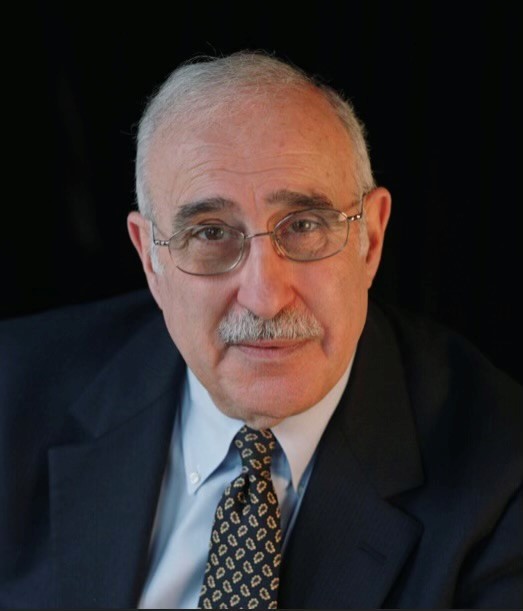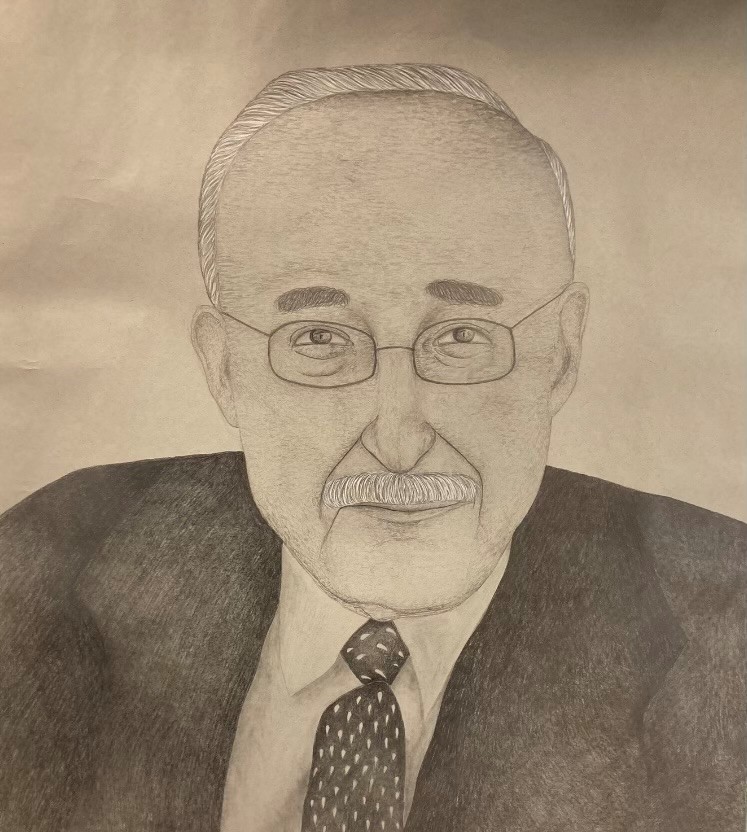
Leo was born in July, 1939 in Amsterdam to a family of Dutch Jews. He had a wonderful childhood and a beautiful home. His father was German and worked in the diamond business. In 1940, after Hitler bombed Holland, Leo, his parents and grandmother went to a fishing point to try to escape Holland, but there were no boats. They made multiple attempts to escape, but eventually realized that they would never be able to leave because the Germans had sealed the borders. All Jews were forced into Amsterdam, so his extended family moved into his apartment. Jews were not permitted to attend public schools, visit parks, shop at grocery stores, dine at restaurants, have radios, and ride trains or cars.
The Nazis placed a “J” for Jew on all forms of identification for Jews. Jewish women had to have “Sarah” as a middle name while all men had to have “Simon” as a middle name. Yellow Jewish stars were forcibly sewn on the clothes Jews wore so they could be identified easily.
Leo and his family did not have many options for survival because England and the US did not accept Jews. His father wanted them to go into hiding. When the Nazis found his cousins, Leo’s grandma tried to bribe the Germans with diamonds, but his cousins were imprisoned and ultimately sent to a concentration camp in Germany.
In 1943, when Leo was 4 years old, his parents wanted him to go into hiding alone so that he could be saved. With the help of a priest, his parents gave him to the resistance movement while they hid in a different location. A Muslim rug dealer gave Leo’s father a Muslim prayer rug and told him to take it with him into hiding because it was good luck. Leo’s parents hid in an attic with no heat electricity and only one window. It was tiny and cramped and they did not have food, but they kept that rug with them. His mother left the apartment only once during those three years to visit a dentist. When the dentist laid eyes on her, he gave her a loaf of bread.
While his parents remained in hiding, Leo moved around. First, he lived with a retired policeman and his wife. They were good people. They didn’t know Leo, but knew that if this young boy were discovered, he would be killed. The couple cared for him and then placed him in an orphanage where he was ultimately taken in by a family from the suburbs with a seventeen year old daughter. Leo did not suffer. The family cared for him and he did not know that there was a war going on. Throughout this time, his parents were unaware of Leo’s whereabouts.
In May of 1945, the war ended in Holland and everyone celebrated by wearing orange to honor the Dutch House of Orange. With the help of the resistance movement, Leo and his parents were reunited, but reconnecting had its challenges. His parents were so emaciated they could barely walk and Leo did not remember or recognize his parents. When they returned home, he remained in touch with the family that cared for him. In time, Leo went back to school, his father got his job back, they moved into a house, bought a car and adopted a dog. Though it would seem their lives were full again, they were not because most of their friends and relatives had been killed. It was because of this emotional void that Leo’s family decided to come to America.
In 1947, Leo and his parents sailed to New York. As they crossed through Ellis Island, his mom said, “We did it! We beat Hitler!” They settled in Port Washington where Leo attended public school and learned English. His dad found a job at a store in Manhasset.
In 1961, Leo graduated from Harvard College. In 1964, he graduated from Columbia Law School and Columbia Business School. He served in the Marine Corps and the Marine Corps reserves between 1959-1965. Leo practiced law for over thirty years and founded highly successful real estate and management companies.
Leo is connected to Anne Frank’s family. He has hosted Anne Frank’s cousins at his house and he even helped bring her diary to the Dutch government, which would eventually become The Diary of Anne Frank. Leo served as a Director of the Anne Frank Center USA for two decades and as its Chairman for seven years. He has also served as the Chairman of the Foundation for the Jewish Historical Museum of Amsterdam. He and his wife Kay co-sponsored the exhibit State of Deception: The Power of Nazi Propaganda at the U.S. National Holocaust Memorial Museum in Washington, DC, where he also served as a member of the Development Committee.
In 2015, Leo published a book about his life titled 796 Days: Hiding as a Child in Occupied Amsterdam During WWII and Then Coming to America.
Leo and Kay Ullman have four children, nine grandchildren, and live on Long Island, New York where he keeps the rug that was given to his father before their family went into hiding. The rug serves as a reminder of their family’s strength and perseverance. To this day, Leo is passionate about sharing his story. He lectures widely and hopes that through education history will never be erased.


